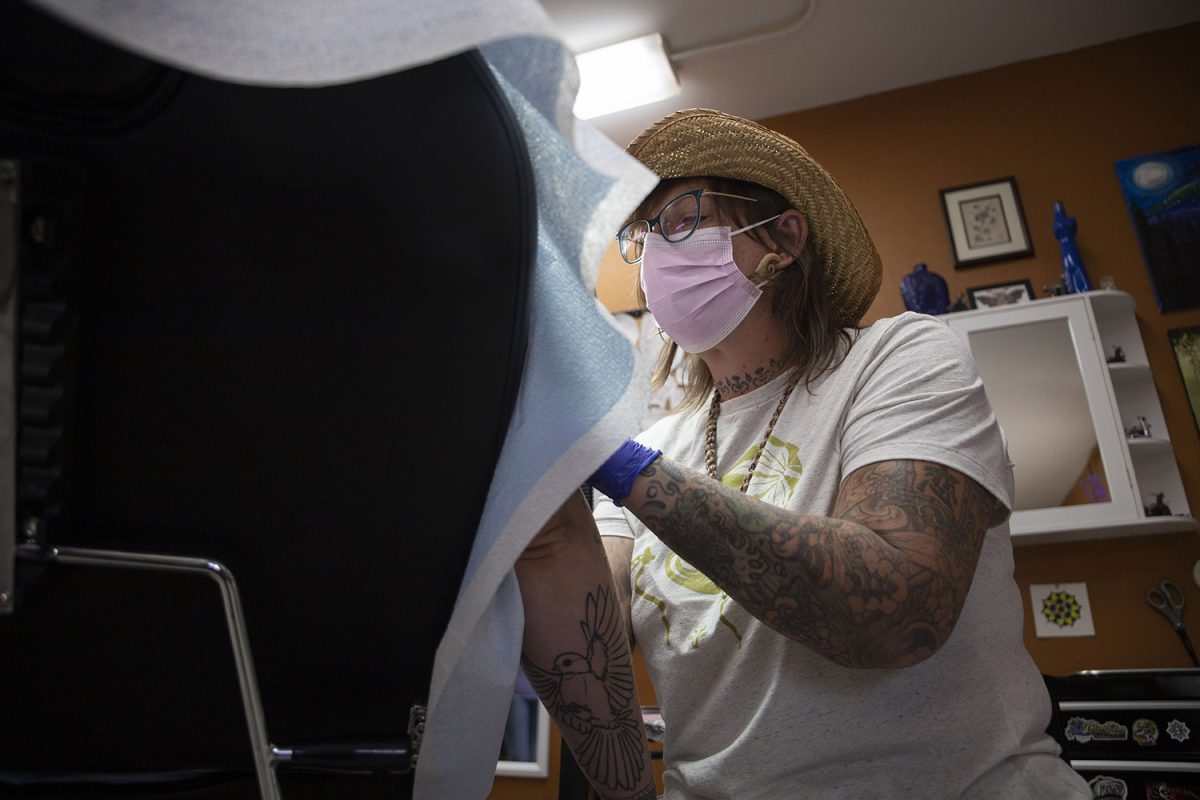As the holidays near, Iowa City residents are stepping up to support toy drives aimed at brightening the season for local families.
The Domestic Violence Intervention Program, or DVIP, is gathering donations for its annual holiday shop, which provides free gifts to families receiving shelter and outreach services from the organization.
Alta Medea, DVIP’s director of community engagement, emphasized that bringing joy to families during the holiday season plays a vital role in supporting their clients’ healing journey.
“Celebrations happen even when you’re in crisis,” Medea said. “We are often working with folks at the very worst time of their lives, having to make some really hard decisions and fleeing abuse.”
She said that DVIP ensures the holiday shop is fully stocked with a wide variety of gifts, giving parents the opportunity to choose items that match their children’s specific interests and needs. The available items include large presents, stocking stuffers, pajamas, and stuffed animals.
“A lot of individuals that shop at our holiday store have not been able to choose gifts for their kiddos previously,” Medea said. “Having that wide variety, having that option for them to do so safely, without fear of being stalked or harassed or the burden financially, is able to give them a little bit more hope.”
DVIP’s holiday shop will remain open for families until Christmas Eve, and Medea said any donated gifts left over will be added to the organization’s birthday closet, which is open year-round for families to access free birthday gifts for children.
As DVIP works to support families in crisis, a separate toy redistribution project in Iowa City emphasizes the power of mutual aid to create a more inclusive holiday spirit.
During the COVID-19 pandemic, community members Annie Ventullo and Tricia Windschitl saw firsthand how economic hardships impacted families, especially during the holiday season.
In response, Windschitl and her daughter launched the first toy redistribution initiative, and Ventullo, drawing on her background in social work, quickly joined the effort.
Four years later, Ventullo said the initiative continues to address a vital need in the community, extending its impact far beyond the pandemic.
“A lot of families were really struggling during the pandemic,” Ventullo said. “And it turns out lots of families are struggling all the time. So, we’ve expanded this.”
Ventullo described the toy redistribution initiative as a mutual aid network rather than a traditional charity. Unlike conventional models in which people with resources donate to those without, this initiative welcomes all families — regardless of economic status — to pick up donated toys.
RELATED: Stead Family Children’s Hospital celebrates the holidays
She emphasized that this approach helps reach families who often miss out on traditional charity programs. These programs usually require extensive paperwork or proof of need, which can be a barrier for families who move frequently or for parents with executive functioning challenges that make accessing such documents difficult.
“I was just seeing these gaps where traditional need resources were not always supporting folks, so we’re going to eliminate as many barriers as we can,” Ventullo said. “We don’t ask for proof. We just say, ‘How many kids are you here to shop for?’ And then they get to shop.”
The toy redistribution initiative has grown with the help of Windschitl’s nonprofit organization the LENA project, as well as CommUnity Crisis Services, which provided a warehouse space for Windschitl and Ventullo to gather donated toys this year.
Local tattoo shops Velvet Lotus and Swanky Bits also supported the initiative through a “Tats for Tots” fundraiser earlier this fall.
Michelle Balhan, owner of Velvet Lotus, shared that the shops hosted a day-long event where participants chose from a selection of pre-designed tattoos, raising $4,200 for the toy redistribution effort.
“We do fundraising ahead of the event to supplement any toys,” Balhan said. “Sometimes, it’s hard for people to donate gifts for the teenage [age] range.”
Balhan echoed Ventullo’s emphasis on the value of mutual aid and highlighted another benefit of the toy redistribution initiative: It appeals to environmentally conscious families.
By redistributing gently used toys, the program helps keep items out of landfills while supporting local children.
“I just love the concept of just people helping people,” Balhan said. “It doesn’t matter what the economic or income level of someone is — it’s just everybody helping everybody.”



